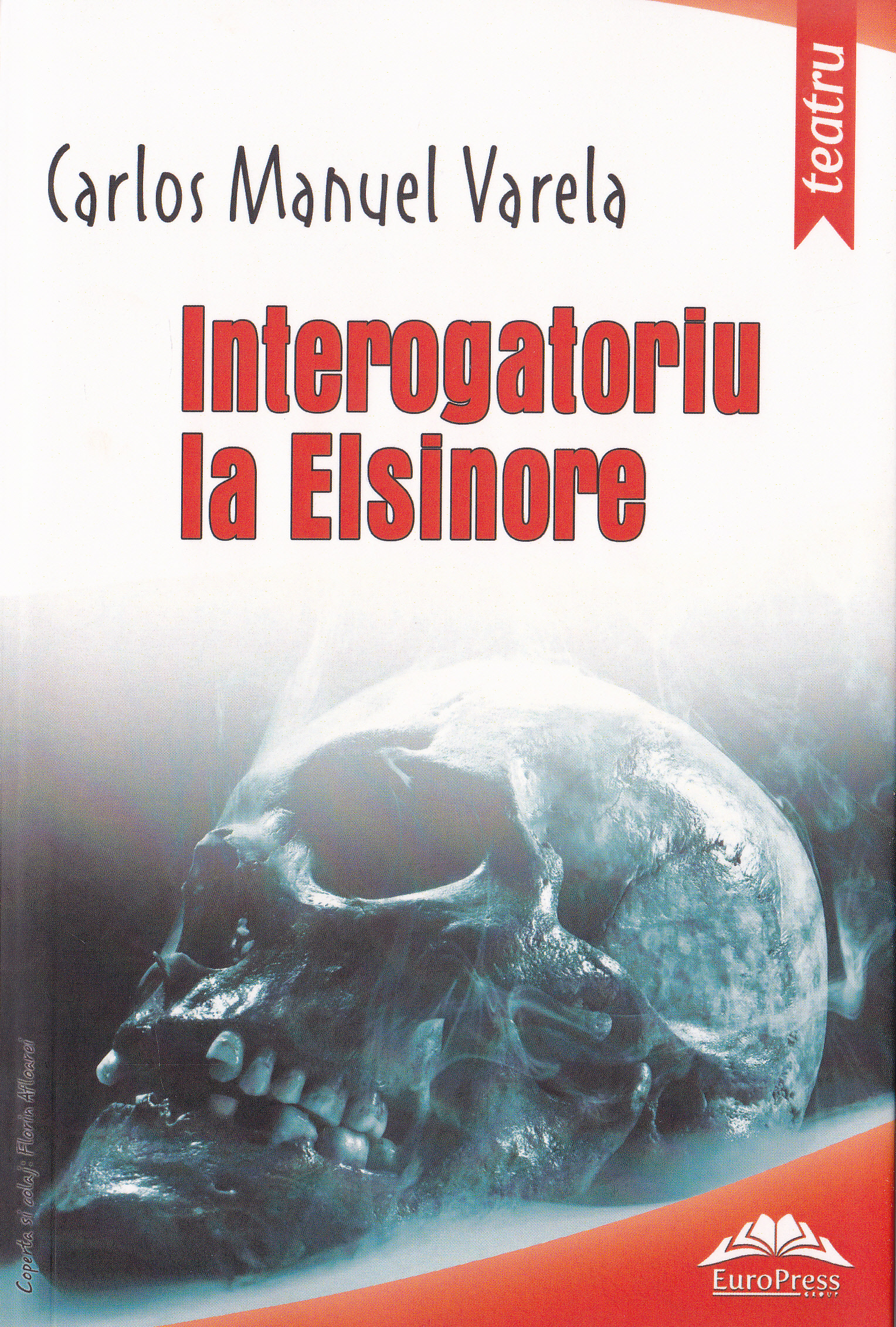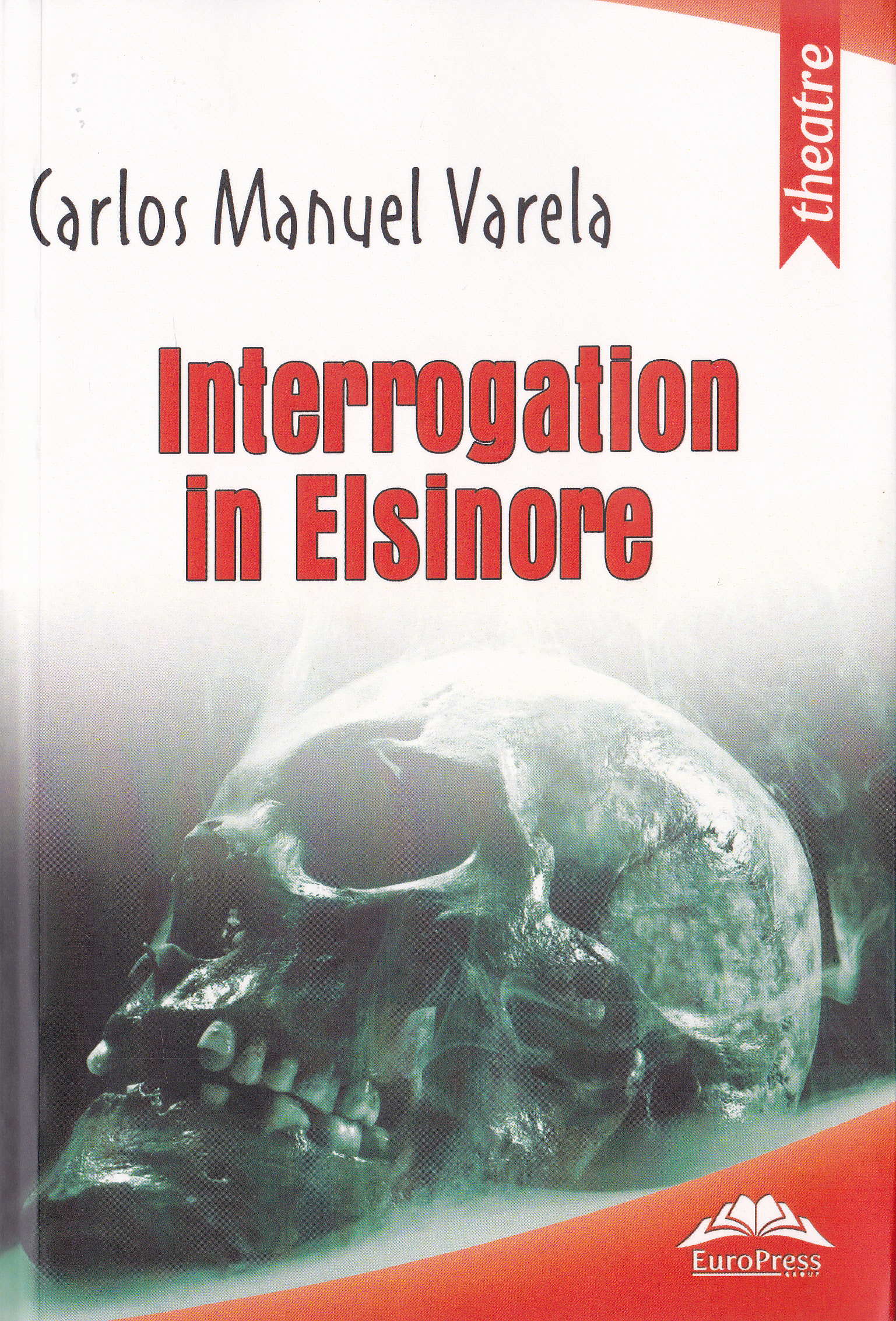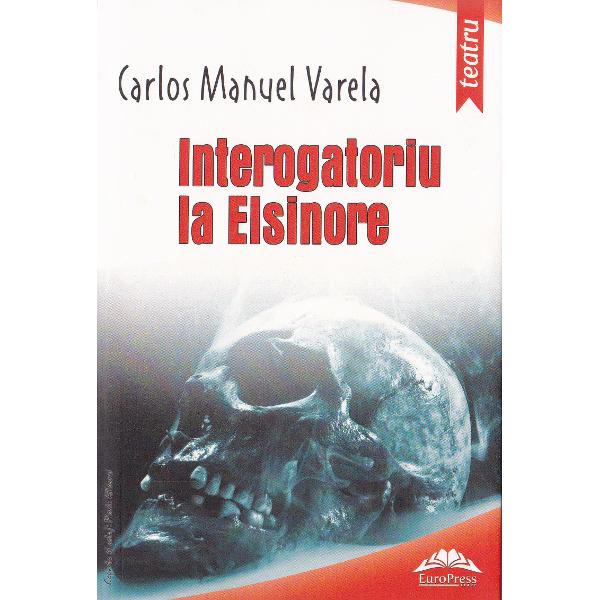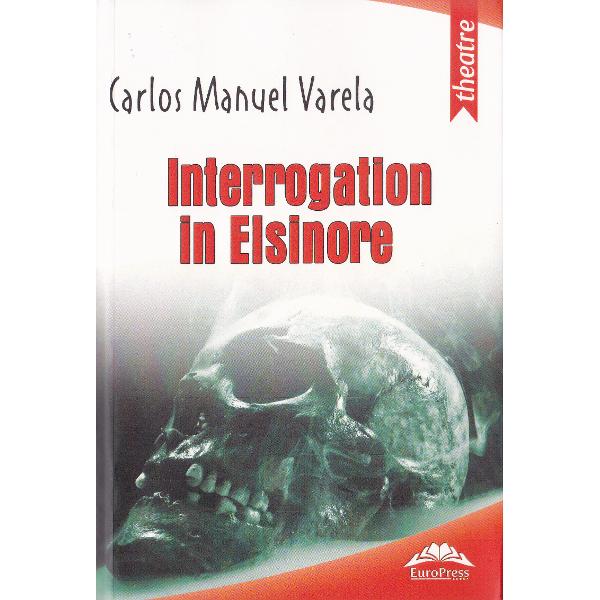Interogatoriu la Elsinore
For the spectator initiated in the political aspect of the Shakespearean theatre, Carlos Manuel Varela’s Interrogatorio en Elsinore proposes „a kind of extended palimpsest” of Hamlet that connects on stage a troubled, fictional Elsinore to the traumatic reality of Uruguay during the military junta. For the reader fascinated by comparative literary studies and implicated in the theatre world, Interrogatorio en Elsinore resonates with Nedjalko Iordanov’s The Murder of Gonzago by drawing from parallel extreme ideologies of neo-fascist and communist dictatorships and their institutionalized regime of terror. Both plays showcase the potential of the performance in Hamlet to underpin the role of the artist in the political landscape.
Fragment din carte:
"ACTORUL: De ce oare?
ANCHETATORUL: Ai ales pe cine nu trebuia, ai facut o alegere gresita, pricepi? Horatio a fost ales prim consilier dupa moartea lui Polonius. Regele nu te crede. Nimeni nu te crede. (Merge catre masa cu documente, se uita prin ele cu atentie.) Ba pe deasupra, totul devine mai complicat. Regele nu se mai uita la actori cu ochi buni. Tocmai a anulat piesele de jucat la curtea sa...si banuiesc c-o sa inceapa cenzureze mai mult pe actorii din Danemarca. I-am auzit discursul de aseara si parea furios, crede-ma pe cuvant. Spunea ca are de gand sa schimbe legile si sa inchida teatrul. A zis ca teatrul e o pacoste pe orase...iar eu cred ca regele meu are dreptate. De la teatru vin tot felul de necazuri, mai ales din piesa aia afurisita de la care a pornit totul. Voi, actorii, spuneti ca teatrul amuza si invata lumea, dar tot voi sunteti cei fara nicio alta ocupatie sau care faceti lucruri necugetate. Asa, ca tinerii aia care se tot tin dupa voi, obisnuiti cu trandaveala si cu o viata de placeri.
ACTORUL: (Dupa o pauza, ganditor) Regelui nu-i place sa se uite in oglinda, nu?
ANCHETATORUL: (Lovind aerul cu pumnul, strigand) Ce oglinda e asta? Blestemata sa fie, arata toate hidoseniile ce trebuie ascunse, tot ce te rusineaza si te ingrozeste.
ACTORUL: (Foarte incet) Adevarul e cumplit, stiu asta.
ANCHETATORUL: Trebuie sa spui adevarul, odata pentru totdeauna. Se intampla ceva aici si nu vreau sa-mi pierd cumpatul, pricepi?
INTERROGATOR: You said that Horatio, the prince's best friend, was the head of the conspiracy.
ACTOR: Yes, I said it.
INTERROGATOR: They don't believe you.
ACTOR: Why's that?
INTERROGATOR: You picked the wrong guy, you made the wrong choice, do you understand? Horatio was appointed first councilor after Polonius's death. The king doesn't believe you. Nobody believes you. (He walks toward the documents, peruses them.) More than that, everything is getting complicated. The king no longer sees the actors favorably. He just banned performances at the palace...and I think he will soon launch a more severe censorship over all of Denmark's actors. I heard his speech last night and he sounded furious, I can assure you of that. He said he was thinking about modifying the laws and closing down the theater. He said that the theater is the plague of cities...and I think that my king is right. All kinds of trouble are born from it, because all the harm came from that damned performance. All of you actors say that theater entertains and teaches, yet you are the ones who have no other occupation or opportunity but to do crazy things, like that youth that follows you around, accustomed to idleness and a life of fun and pleasure.
ACTOR: (After a pause, pensive) The king doesn't want to see himself in the mirror, right?
INTERROGATOR: (Hitting the air, shouting) What mirror is that one? Damned mirror that shows in public the deformities that should be hidden, that shows what produces shame and horror in life.
ACTOR: (Very softly) The truth is scary, I know. "
Descrierea produsului
For the spectator initiated in the political aspect of the Shakespearean theatre, Carlos Manuel Varela’s Interrogatorio en Elsinore proposes „a kind of extended palimpsest” of Hamlet that connects on stage a troubled, fictional Elsinore to the traumatic reality of Uruguay during the military junta. For the reader fascinated by comparative literary studies and implicated in the theatre world, Interrogatorio en Elsinore resonates with Nedjalko Iordanov’s The Murder of Gonzago by drawing from parallel extreme ideologies of neo-fascist and communist dictatorships and their institutionalized regime of terror. Both plays showcase the potential of the performance in Hamlet to underpin the role of the artist in the political landscape.
Fragment din carte:
"ACTORUL: De ce oare?
ANCHETATORUL: Ai ales pe cine nu trebuia, ai facut o alegere gresita, pricepi? Horatio a fost ales prim consilier dupa moartea lui Polonius. Regele nu te crede. Nimeni nu te crede. (Merge catre masa cu documente, se uita prin ele cu atentie.) Ba pe deasupra, totul devine mai complicat. Regele nu se mai uita la actori cu ochi buni. Tocmai a anulat piesele de jucat la curtea sa...si banuiesc c-o sa inceapa cenzureze mai mult pe actorii din Danemarca. I-am auzit discursul de aseara si parea furios, crede-ma pe cuvant. Spunea ca are de gand sa schimbe legile si sa inchida teatrul. A zis ca teatrul e o pacoste pe orase...iar eu cred ca regele meu are dreptate. De la teatru vin tot felul de necazuri, mai ales din piesa aia afurisita de la care a pornit totul. Voi, actorii, spuneti ca teatrul amuza si invata lumea, dar tot voi sunteti cei fara nicio alta ocupatie sau care faceti lucruri necugetate. Asa, ca tinerii aia care se tot tin dupa voi, obisnuiti cu trandaveala si cu o viata de placeri.
ACTORUL: (Dupa o pauza, ganditor) Regelui nu-i place sa se uite in oglinda, nu?
ANCHETATORUL: (Lovind aerul cu pumnul, strigand) Ce oglinda e asta? Blestemata sa fie, arata toate hidoseniile ce trebuie ascunse, tot ce te rusineaza si te ingrozeste.
ACTORUL: (Foarte incet) Adevarul e cumplit, stiu asta.
ANCHETATORUL: Trebuie sa spui adevarul, odata pentru totdeauna. Se intampla ceva aici si nu vreau sa-mi pierd cumpatul, pricepi?
INTERROGATOR: You said that Horatio, the prince's best friend, was the head of the conspiracy.
ACTOR: Yes, I said it.
INTERROGATOR: They don't believe you.
ACTOR: Why's that?
INTERROGATOR: You picked the wrong guy, you made the wrong choice, do you understand? Horatio was appointed first councilor after Polonius's death. The king doesn't believe you. Nobody believes you. (He walks toward the documents, peruses them.) More than that, everything is getting complicated. The king no longer sees the actors favorably. He just banned performances at the palace...and I think he will soon launch a more severe censorship over all of Denmark's actors. I heard his speech last night and he sounded furious, I can assure you of that. He said he was thinking about modifying the laws and closing down the theater. He said that the theater is the plague of cities...and I think that my king is right. All kinds of trouble are born from it, because all the harm came from that damned performance. All of you actors say that theater entertains and teaches, yet you are the ones who have no other occupation or opportunity but to do crazy things, like that youth that follows you around, accustomed to idleness and a life of fun and pleasure.
ACTOR: (After a pause, pensive) The king doesn't want to see himself in the mirror, right?
INTERROGATOR: (Hitting the air, shouting) What mirror is that one? Damned mirror that shows in public the deformities that should be hidden, that shows what produces shame and horror in life.
ACTOR: (Very softly) The truth is scary, I know. "
Detaliile produsului
















